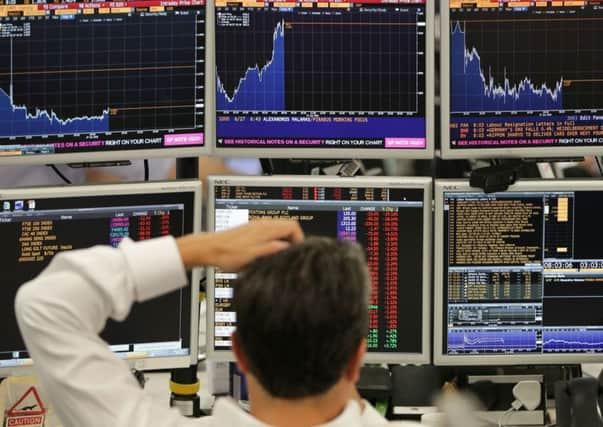Bill Jamieson: Considering life beyond lookalike funds
This article contains affiliate links. We may earn a small commission on items purchased through this article, but that does not affect our editorial judgement.


Amid the evident disquiet over turmoil in currency markets, shares have powered ahead, with the FTSE 100 index gaining a further 2.1 per cent on the week to 7,044.39.
The big gainers have been investors in overseas markets where the fall in the pound has worked to magnify the gains.
Advertisement
Hide AdAdvertisement
Hide AdFor example, in the US, domestic investors have seen the S&P 500 rise 5.7 per cent this year, but UK investors have enjoyed a 25.3 per cent return, thanks to the pound’s fall against the dollar.
The disparity is even more pronounced in Japan, where domestic investors have lost 12.7 per cent, but UK investors have made 20.5 per cent.
In the investment trust sector, funds with a global investment brief have been doing outstandingly well. Lindsell Train has leapt 69.2 per cent on a total return basis over the past twelve months, while Scottish Mortgage has climbed 39.5 per cent and Monks Investment Trust, its Baillie-Gifford managed stable mate, is close behind with a gain of 35.5 per cent.
Also sporting impressive gains have been British Empire, up by 33.8 per cent, the much management troubled Alliance Trust with a 26.3 per cent gain and Scottish Investment Trust (SIT), up 23 per cent. These trusts are particularly worth noting as they are still standing on sizeable discounts to their net assets – 10.7 per cent at British Empire and 14.2 per cent at SIT.
Overall, many UK investors now look in line for the best returns from global markets since 1999. The FTSE World is up 24.2 per cent so far this year in pound terms – and, as Citywire notes, now challenging the 24.5 per cent return delivered in 2005.
For this, of course, there is likely to be a reckoning – a return of inflation that could challenge the Bank of England’s 2 per cent target rate – and higher raw material input costs for UK manufacturers.
Meanwhile the rally has set an awkward trap for investors. Many will be tempted to lock in these gains and take profits while they can. But where to re-invest the proceeds? There is a widespread apprehension that the great bond market rally is drawing to a close – and it may not prove to be anything like an orderly and gentle decline. There is cash – but even if capital is protected from risk, investors tend to weary of a zero return.
That leaves equities – but where is value to be found after such a strong rally this year – and one that has tended to overlook the uncertainty and volatility likely to characterise the next 12 to 18 months?Private investors can find their choice here is limited. Independent financial advisers tend to focus on the large, lookalike funds and trusts that hug the main indices. And when there is a market “correction” almost all of them tend to move in line, with little of the mooted benefits of diversification.
Advertisement
Hide AdAdvertisement
Hide AdThis is arguably the time for investors to be taking a wider and longer-term view. For example, there has been considerable interest in infrastructure funds. But this sub sector of the investment trust world looks very fully valued at present with trusts standing on hefty premiums to net asset value. Value may still to be found in small to mid-cap stocks which have not benefited so much from the sterling fall effect but which would be beneficiaries were chancellor Philip Hammond to step up government spending on infrastructure and housing in his Autumn Statement next month. Housing in particular, together with the building materials and supply sector, should enjoy an uplift in business.
But even these might not offer the longer-term view and diversification that investors may now be seeking. Trusts with a difference – that offer exposure to other less crowded sectors – are hard to find. But outstanding among them is Scottish Mortgage, the giant £4 billion trust that has struck out into the internet and the unquoted sectors. The trust, a long-time favourite of this column, has built up highly successful holdings in Facebook, now representing 4.7 per cent of the fund, Amazon – SM’s best performer – and Google – another top ten holding.
But the trust is not stopping here. In July shareholders agreed to allow the trust to invest up to 25 per cent of its portfolio in unquoteds.
Some may regard this as a startling and innovative change in direction for a “conventional” fund. But in truth it is a return to the historic venture capital roots of investment trusts. Expect other trusts to follow. But for the moment Scottish Mortgage offers the diversification – and the future looking opportunities – for which many are now searching.
